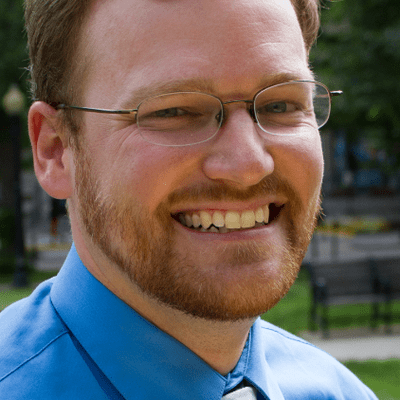Introduction
Tea party groups and other conservative nonprofits at the heart of a scandal rocking the Internal Revenue Service have, of late, largely avoided electoral politics, according to a Center for Public Integrity review of Federal Election Commission filings.
About five dozen groups with the buzzwords “tea party,” “patriot” and “9/12” in their names have been officially recognized by the IRS as “social welfare” nonprofits under Section 501(c)(4) of U.S. tax code. There are about 90,000 such organizations.
But only two of the buzzword groups reported overtly advocating for or against political candidates during 2012, or even mentioning political candidates in broadcast advertisements immediately before primary or general elections.
And one of those is, in fact, unabashedly liberal.
Both groups, which use a version of “patriot” in their names, offer contrasting perspectives into the nebulous world of politically active nonprofits.
One of these is Patriotic Veterans, Inc, a Chicago-based organization launched in 2008. Conservative political consultant Paul Caprio serves as its president.
Patriotic Veterans told the FEC that it spent $86,700 on radio ads that mentioned Sen. Bob Casey, D-Pa., and Republican House candidate Adam Kinzinger of Illinois ahead of during the 2012 election.
IRS records show automated phone calls have also been a regular expense of the group.
In 2004, Caprio worked with John O’Neill, co-author of the controversial book Unfit for Command, to design a voter-contact program aimed at veterans highlighting Democratic presidential nominee John Kerry’s “true record of service in Vietnam,” according to Caprio’s online biography.
An archived version of the group’s now-defunct website says its mission is “to inform voters of the positions taken by candidates and office holders on issues of interest to veterans.”
Only one other 501(c)(4) “patriot”-named nonprofit reported spending to the FEC during the 2012 election cycle: a liberal-aligned group called Patriot Majority USA.
Ahead of the 2012 election, Patriot Majority USA reported spending about $7.5 million to the FEC on political advertisements, most of them highly critical of Republicans.
Based in Washington, D.C., Patriot Majority USA was established in March 2011, after being spun-off from another operation.
The nonprofit is headed by strategist Craig Varoga, who has advised numerous Democratic candidates, including Maryland Gov. Martin O’Malley and Kentucky Gov. Steve Beshear. In 2010, political committees that were part of the Patriot Majority network spent millions on behalf of Senate Majority Leader Harry Reid, D-Nev., who won a contentious re-election battle that year.
A 2011 filing with the IRS describes the nonprofit’s primary purpose as seeking to “encourage a discussion of economic issues in the United States in order to make America stronger and promote our country’s future economic prosperity.”
When it applied for tax-exempt status, the group told the IRS that its political spending would not exceed 40 percent of its annual budget, according to documents obtained by the Center for Responsive Politics.
Patriot Majority USA has never publicly reported any of its funders.
When the FEC asked about the lack of information about donors, Patriot Majority USA’s counsel Ezra Reese said that the group, as a matter of policy, “does not accept contributions earmarked for a specific political purpose.”
Federal law only requires nonprofit groups to disclose the names of donors who earmark contributions for political advertisements — something donors rarely do.
Meanwhile, political committees — including super PACs, which, like nonprofits, are allowed to accept donations of unlimited size — are required to reveal all donors who give more than $200.
Neither Varoga nor Caprio responded to requests for comment.
Faced with an onslaught of new applications by organizations seeking tax-exempt status under Section 501(c)(4) of the U.S. tax code, IRS employees in 2010 developed a shorthand for cases they thought might merit additional scrutiny.
If words such as appeared in groups’ names, applications were flagged as potential political cases, according to a report released Tuesday by the Treasury Inspector General for Tax Administration.
The rules for who can fund social welfare nonprofits’ political advocacy have been loosened in the wake of the U.S. Supreme Court’s 2010 Citizens United v. Federal Election Commission ruling.
While 501(c)(4) nonprofits cannot primarily be in the business of influencing elections, they are legally allowed to call for the election or defeat of candidates. When they do, they must disclose their expenditures to the FEC — just as individuals, labor unions, business associations and corporations do.
They must also report expenditures related to ads that mention politicians shortly before an election, even if they fall short of explicitly advocating for their support or defeat.
Social welfare nonprofits — such as Crossroads Grassroots Policy Strategies, which was co-founded by Republican strategist Karl Rove — spent hundreds of millions of dollars ahead of the 2012 election.
The inspector general’s report concluded that despite the use of “inappropriate criteria,” the IRS was “not politically biased” in its assessment of nonprofits’ applications.
In recent days, the agency’s actions have received bipartisan condemnation, and IRS Acting Commissioner Steven Miller resigned Wednesday.
Ben Wieder contributed to this report.
Read more in Money and Democracy
Primary Source
Funds from Adelson-backed super PAC boost Georgia nonprofit
State hosting competitive U.S. Senate race in 2014
Primary Source
Do nonprofits’ names imply political activity?
Most social welfare nonprofits don’t have politically charged names

Join the conversation
Show Comments